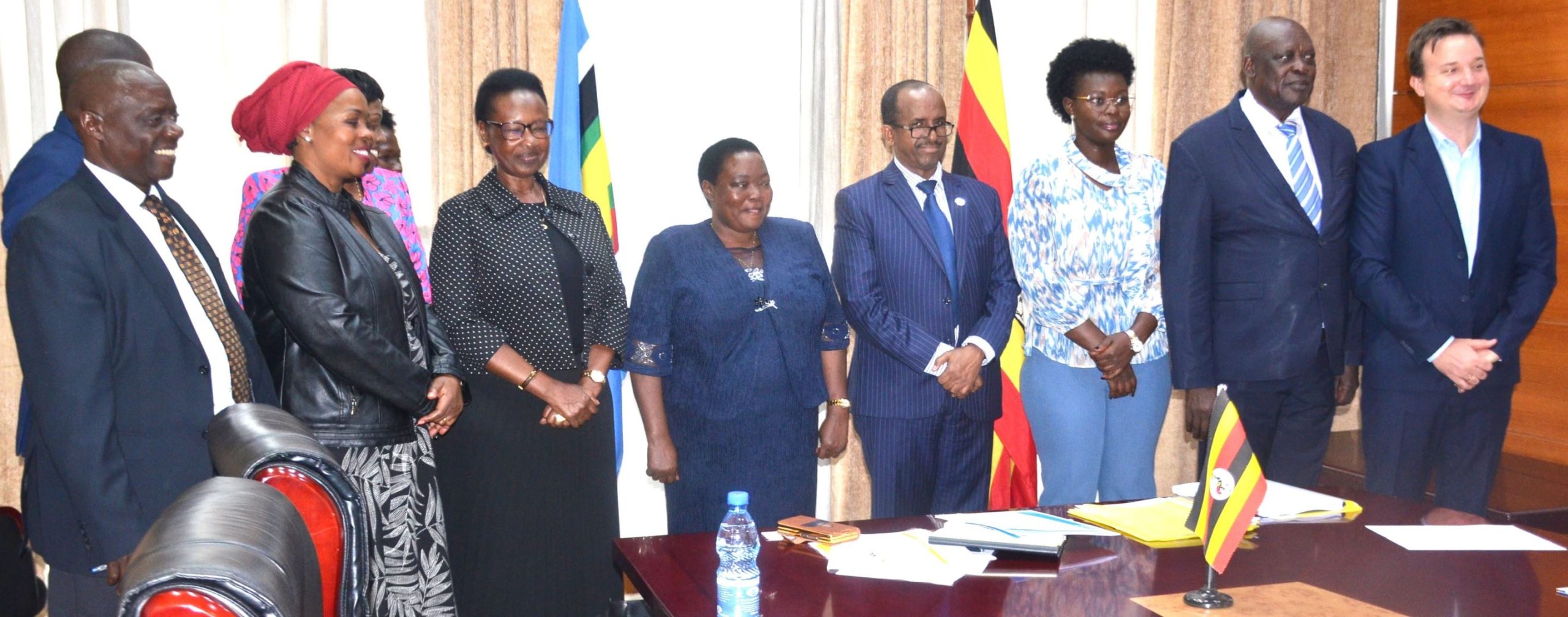By: Ismael Kasooha
KAMPALA
The World Food Programme (WFP) is planning to set up a logistic hub in Uganda for the region.
“We are planning to establish a logistics hub for the entire region here in the country to supply the surrounding countries,” said Abdirahman Meygag, the World Food Programme Country Director.
Meygag revealed this during a meeting with the Prime Minister Robinah Nabbanja at the Office of the Prime Minister in Kampala.
Currently, Uganda is hosting over 1.6 million refugees who are largely dependent on the WFP through the United Nations High commission for Refugees (UNHCR).
Uganda being a food basket for the region, there are concerns that WFP was importing food from other countries to feed the hunger stricken Ugandans in Karamoja and the refugees instead of buying it directly from the local farmers.
The meeting follows that that the Prime Minister Robinah Nabbanja held partners while in Geneva under the directive of H.E. the President, where he asked WFP to buy food locally.
Last year, while in Italy during the Italy-Africa summit, the Prime minister Nabbanja met the Director General of the United Nations International Organization for Migration (IOM) Amy E. Pope and discussed matters of Refugee management. Nabbanja asked the Director to support Uganda by locally purchasing all food supplied to the refugees from within Uganda.
In response, Meygag told the Premier that WFP has changed in its policies and is now giving priority to local purchases apart from those items that cannot be produced from within the country.
“We are purchasing at least 80% of all the food supplies within Uganda and even the food we supply to Sudan is bought from Uganda,” said Meygag.
Nabbanja briefed the Country Director on how Uganda has transformed from one of the leading producers of Refugees before 1986 to the leading Refugee hosting country in Africa by hosting over 1.6 million people.
Nabbanja said that the UN needs to adopt to sustainable means of feeding Refugees so that they are empowered to produce their own food by constructing permanent structures to reduce the pressure on land through the numerous structures for accommodation.
The Prime Minister Robinah Nabbanja is also concerned that the support from WFP is dwindling and yet the refugees are increasing daily.
Meygag said WFP last year spent about USD350 Million to buy food from the local farmers and about USD 2 Million was spent to buying food from farmers in Karamoja sub region.
“We are also responding to the call by the President under the programe of ‘Karamoja feed Karamoja’ and that is why we are buying maize from the smallholder farmers in Karamoja,” said Meygag.
End





